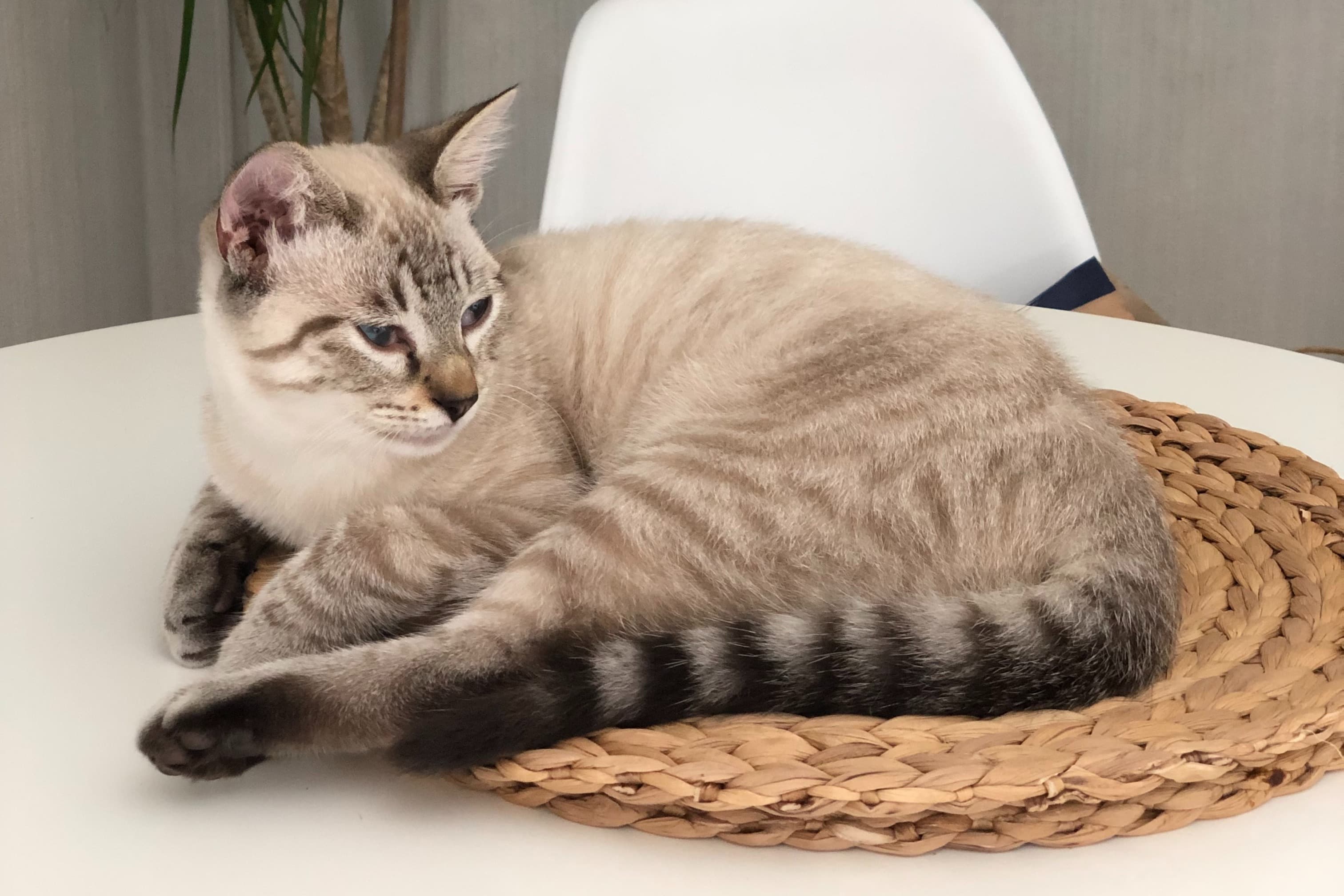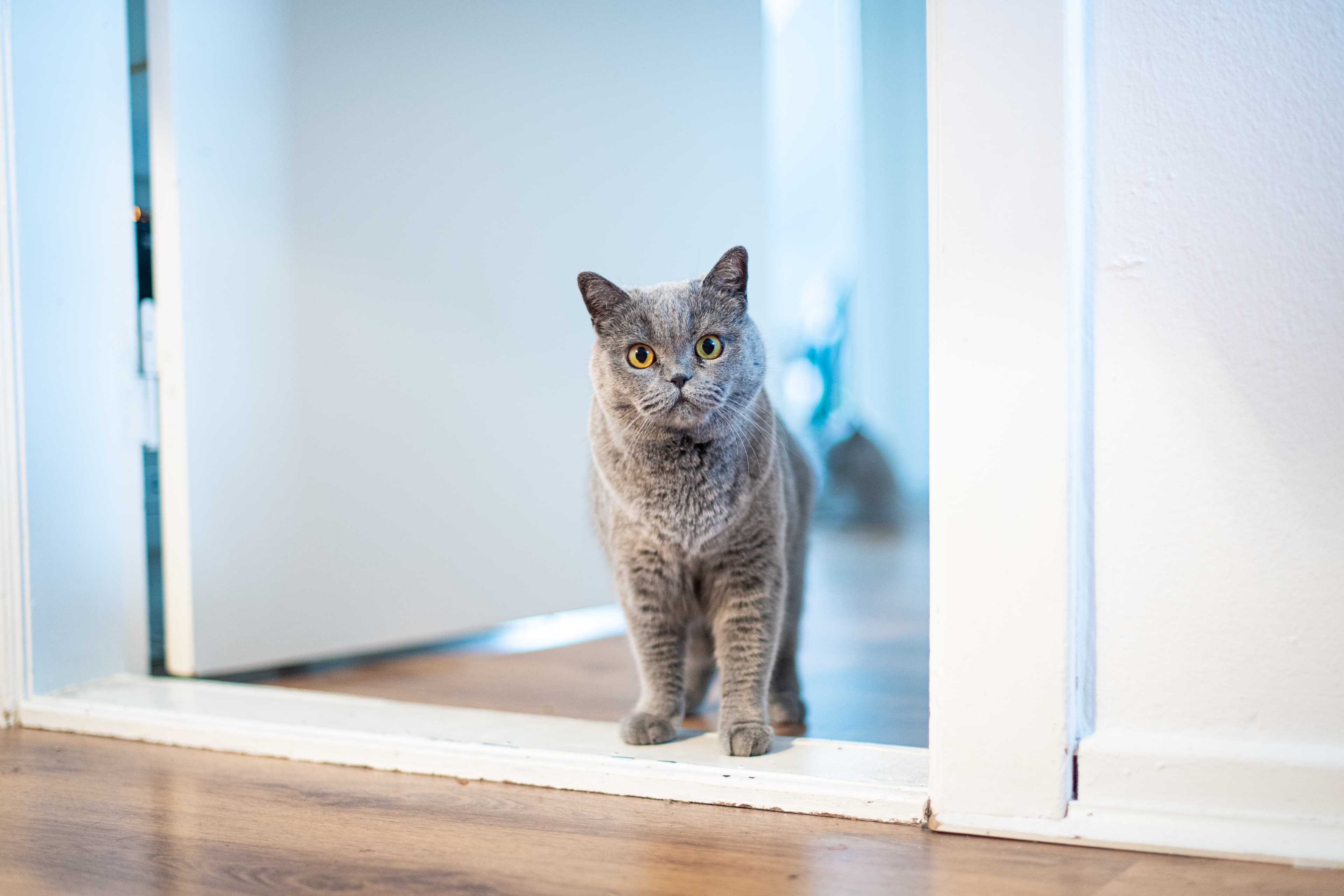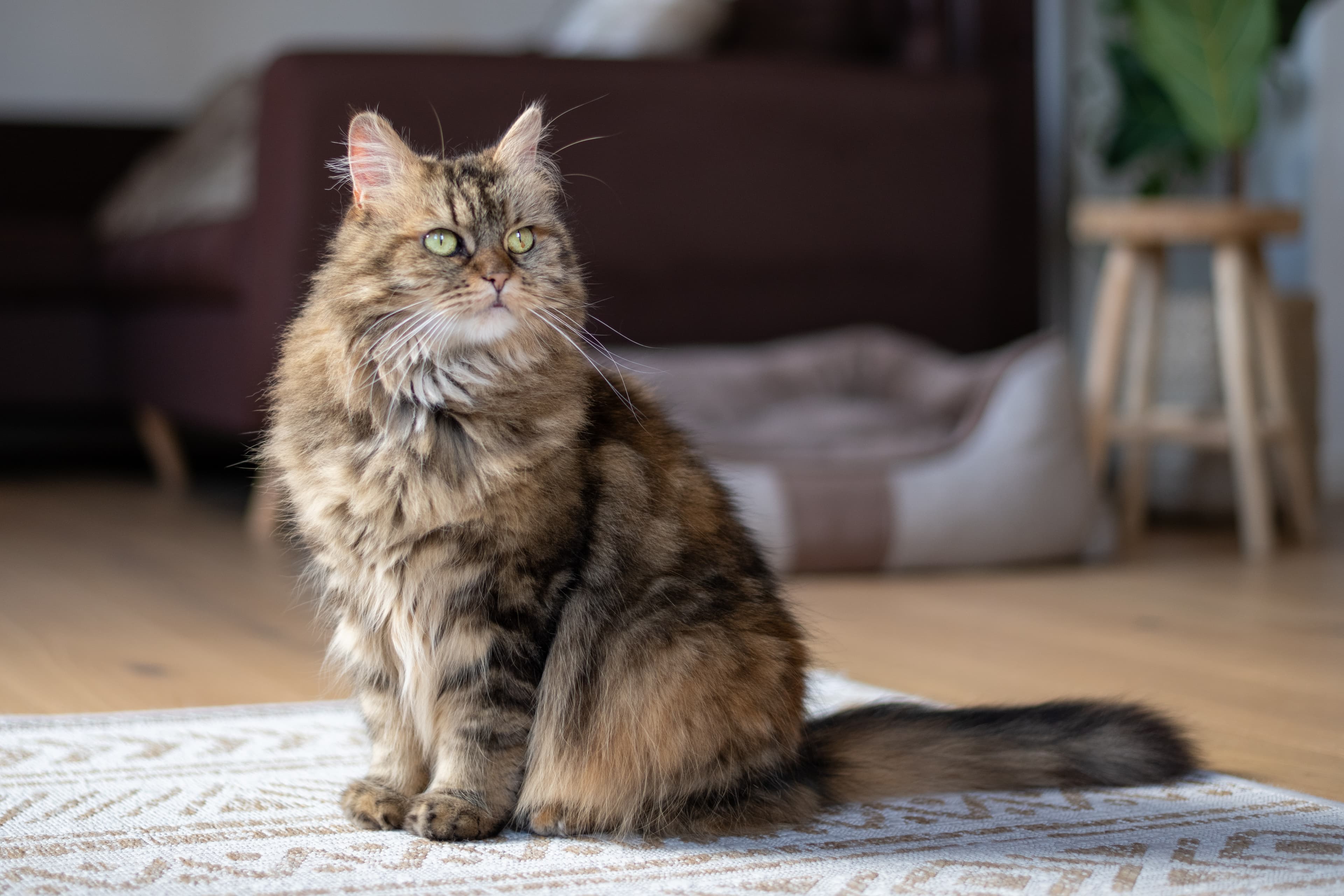Midsummer with cats
As with other holidays, it's a good idea to give your four-legged friend a little extra thought before the Midsummer celebrations get underway, whether your cat is joining in the fun or staying at home.
The Home Cat
Cats are creatures of habit and dislike change or when things in their territory or environment change. Perhaps your cat will be best at home during the Midsummer holidays if you're not going to be away for too long and you have someone who can look after your cat regularly. Make sure your cat has access to food, water and a clean litter tray. Temperatures can rise during the Midsummer holidays, so make sure the area where your cat is staying doesn't get too hot and that it has the opportunity to rest in a cool place no matter how hot it gets outside. Someone should check on your cat daily to make sure it is comfortable. According to Swedish law, a cat must be seen at least twice a day.
Midsummer cat
If you're taking your cat to the Midsummer celebrations, it's a good idea to prepare well in advance. Make sure you have a safe and spacious cage and put it out a week or so beforehand so that your cat gets used to it and can explore it in peace and quiet. You may want to test drive it before you leave to see how your cat reacts to being transported.
Tips for a good cat trip
Put a familiar blanket or toy in the cage that your cat is used to from before. Cats are territorial animals and this can remind the cat of its territory and make it more comfortable.
If you're travelling long distances, make sure your cat has regular access to water. Avoid food if you are not travelling for a long time/more than half a day as food can make the cat vomit if it feels unwell during the journey. Also, do not feed a few hours before departure for the same reason.
Some cats may be so nervous about the journey that they urinate or defecate on themselves. Be prepared for this and put newspaper in the bottom of the cage to make it easier if this happens.
If your cat is usually stressed by being transported, there are various sedatives that can be given before or during departure. For example, you could try natural pheromones such as Feliway or soothing milk proteins such as Zylkene. These are available over the counter from a pharmacy or veterinary clinic.
It is important to distinguish between stress and nausea associated with transport. Stress can sometimes be counteracted by using natural preparations as described above. Some cats may need prescription medicines prescribed by a vet if such preparations are not enough. If you think it is nausea/nausea your cat is suffering from, there are motion sickness tablets for animals. Contact your vet or an digital vet to discuss whether this may be appropriate for your cat. If you have Lassie insurance, you have unlimited calls to digital vet.
During the Midsummer celebrations
What would Midsummer be without the traditional Midsummer buffet? However, some food can be toxic to your cat. So keep an extra eye on your cat during the celebrations and make sure it doesn't eat any of the following:
1. Onions and garlic
Onions contain substances that can damage the red blood cells in the body, causing anaemia. After ingestion, stomach and intestinal problems such as vomiting and diarrhoea are first seen, and after a few days the cat may become lethargic, have pale mucous membranes and an increased breathing rate. If the cat does not receive veterinary care, the ingestion of onions can in the worst case cause death.
2. Raisins and grapes
Raisins and grapes can be harmful to the cat's kidneys and cause kidney failure. How much a cat can tolerate is individual, sometimes as little as a single raisin can be harmful. Common symptoms of raisin or grape poisoning are diarrhoea, vomiting, difficulty urinating and fatigue.
3. Chocolate and cocoa
Chocolate is toxic to both dogs and cats. The harmful substance is called theobromine and is found in cocoa. Early signs of chocolate poisoning can include vomiting, increased breathing, lethargy, increased salivation, heart palpitations and shakiness. The harmful substance theobromine can be found in varying amounts in chocolates, chocolate bars, cakes and cookies. White chocolate contains no or very little theobromine.
4. Coffee
Dogs and cats are more sensitive to caffeine than humans. Coffee can be harmful to your cat depending on how much it consumes. Caffeine intake can cause increased activity, tremors and increased heart rate. Caffeine can also increase blood pressure and cause heart rhythms. Be sure to put away used coffee cups after the party so your cat doesn't lick up what's left.
5. Alcohol
Even small amounts of alcohol can cause problems such as kidney and liver failure, breathing problems, heart problems and unconsciousness in a small cat. So make sure alcoholic drinks and glasses are kept a safe distance from your cat and don't forget to put away half-full glasses and the like before you go to bed.






